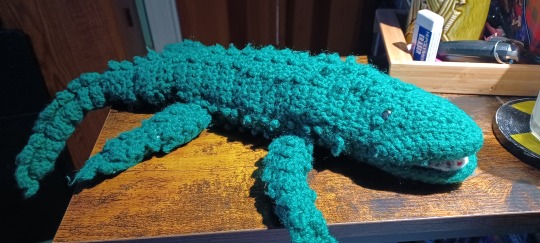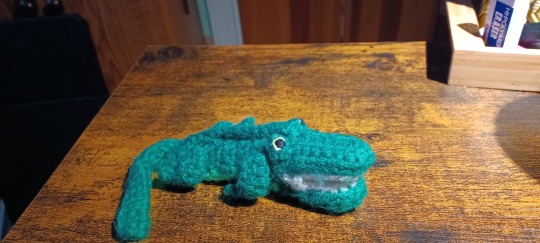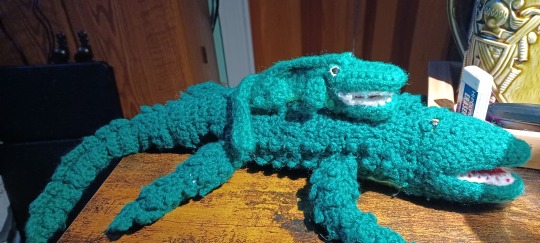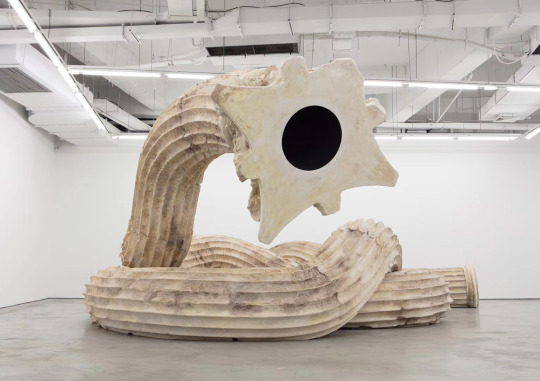emily! an adult with green hair, doing the types of things adults with green hair do.
Don't wanna be here? Send us removal request.
Text


e_e_ instagram / prsene instagram story
pete. you forgot to post the one where alex isn’t mid blink
#my america boys….. come back to me i keess you all on your sweaty little faces#literally watching jonathan decide to stop wearing white tshirts For Modesty in real time RIP#e e#should i start a fridge countdown again
31 notes
·
View notes
Note
worried for you bud are you good
NO!!!!!!!!!!!!!!!!!!!!!!!!!!!!!!!!!!!!!!!!!!!!!!!!!!!!!!!!!!!!!!!!!!!!!!!!!!!!!!!!!!!!!!!!!!!!!!!!!!!!!!!!!!!!!!!!!!!!!!!!!!!!!!!!!!!!!!!!!!!!!!!!!!!!!!!!!!!!!!!!!!!!!!!!!!!!!!!!!!!!!!!!!!!!!!!!!!!!!!!!!!!!!!!!!!!!!!!!!!!!!!!!!!!!!!!!!!!!!!!!!!!!!!!!!!!!!!!!!!!!!!!!!!!!!!!!!!!!!!!!!!!!!!!!!!!!!!!!!!!!!!!!!!!!!!!!!!!!!!!!!!!!!!!!!!!!!!!!!!!!!!!!!!!!!!!!!!!!!!!!!!!!!!!!!!!!!!!!!!!!!!!!!!!!!!!!!!!!!!!!!!!!!!!!!!!!!!!!!!!!!!!!!!!!!!!!!!!!!!!!!!!!!!!!!!!!!!!!!!!!!!!!!!!!!!!!!!!!!!!!!!!!!!!!!!!!!!!!!!!!!!!!!!!!!!!!!!!!!!!!!!!!!!!!!!!!!!!!!!!!!!!!!!!!!!!!!!!!!!!!!!!!!!!!!!!!!!!!!!!!!!!!!!!!!!!!!!!!!!!!!!!!!!!!!!!!!!!!!!!!!!!!!!!!!!!!!!!!!!!!!!!!!!!!!!!!!!!!!!!!!!!!!!!!!!!!!!!!!!!!!!!!!!!!!!!!!!!!!!!!!!!!!!!!!!!!!!!!!!!!!!!!!!!!!!!!!!!!!!!!!!!!!!!!!!!!!!!!!!!!!!!!!!!!!!!!!!!!!!!!!!!!!!!!!!!!!!!!!!!!!!!!!!!!!!!!!!!!!!!!!!!!!!!!!!!!!!!!!!!!!!!!!!!!!!!!!!!!!!!!!!!!!!!!!!!!!!!!!!!!!!!!!!!!!!!!!!!!!!!!!!!!!!!!!!!!!!!!!!!!!!!!!!!!!!!!!!!!!!!!!!!!!!!!!!!!!!!!!!!!!!!!!!!!!!!!!!!!!!!!!!!!!!!!!!!!!!!!!!!!!!!!!!!!!!!!!!!!!!!!!!!!!!!!!!!!!!!!!!!!!!!!!!!!!!!!!!!!!!!!!!!!!!!!!!!!!!!!!!!!!!!!!!!!!!!!!!!!!!!!!!!!!!!!!!!!!!!!!!!!!!!!!!!!!!!!!!!!!!!!!!!!!!!!!!!!!!!!!!!!!!!!!!!!!!!!!!!!!!!!!!!!!!!!!!!!!!!!!!!!!!!!!!!!!!!!!!!!!!!!!!!!!!!!!!!!!!!!!!!!!!!!!!!!!!!!!!!!!!!!!!!!!!!!!!!!!!!!!!!!!!!!!!!!!!!!!!!!!!!!!!!!!!!!!!!!!!!!!!!!!!!!!!!!!!!!!!!!!!!!!!!!!!!!!!!!!!!!!!!!!!!!!!!!!!!!!!!!!!!!!!!!!!!!!!!!!!!!!!!!!!!!!!!!!!!!!!!!!!!!!!!!!!!!!!!!!!!!!!!!!!!!!!!!!!!!!!!!!!!!!!!!!!!!!!!!!!!!!!!!!!!!!!!!!!!!!!!!!!!!!!!!!!!!!!!!!!!!!!!!!!!!!!!!!!!!!!!!!!!!!!!!!!!!!!!!!!!!!!!!!!!!!!!!!!!!!!!!!!!!!!!!!!!!!!!!!!!!!!!!!!!!!!!!!!!!!!!!!!!!!!!!!!!!!!!!!!!!!!!!!!!!!!!!!!!!!!!!!!!!!!!!!!!!!!!!!!!!!!!!!!!!!!!!!!!!!!!!!!!!!!!!!!!!!!!!!!!!!!!!!!!!!!!!!!!!!!!!!!!!!!!!!!!!!!!!!!!!!!!!!!!!!!!!!!!!!!!!!!!!!!!!!!!!!!!!!!!!!!!!!!!!!!!!!!!!!!!!!!!!!!!!!!!!!!!!!!!!!!!!!!!!!!!!!!!!!!!!!!!!!!!!!!!!!!!!!!!!!!!!!!!!!!!!!!!!!!!!!!!!!!!!!!!!!!!!!!!!!!!!!!!!!!!!!!!!!!!!!!!!!!!!!!!!!!!!!!!!!!!!!!!!!!!!!!!!!!!!!!!!!!!!!!!!!!!!!!!!!!!!!!!!!!!!!!!!!!!!!!!!!!!!!!!!!!!!!!!!!!!!!!!!!!!!!!!!!!!!!!!!!!!!!!!!!!!!!!!!!!!!!!!!!!!!!!!!!!!!!!!!!!!!!!!!!!!!!!!!!!!!!!!!!!!!!!!!!!!!!!!!!!!!!!!!!!!!!!!!!!!!!!!!!!!!!!!!!!!!!!!!!!!!!!!!!!!!!!!!!!!!!!!!!!!!!!!!!!!!!!!!!!!!!!!!!!!!!!!!!!!!!!!!!!!!!!!!!!!!!!!!!!!!!!!!!!!!!!!!!!!!!!!!!!!!!!!!!!!!!!!!!!!!!!!!!!!!!!!!!!!!!!!!!!!!!!!!!!!!!!!!!!!!!!!!!!!!!!!!!!!!!!!!!!!!!!!!!!!!!!!!!!!!!!!!!!!!!!!!!!!!!!!!!!!!!!!!!!!!!!!!!!!!!!!!!!!!!!!!!!!!!!!!!!!!!!!!!!!!!!!!!!!!!!!!!!!!!!!!!!!!!!!!!!!!!!!!!!!!!!!!!!!!!!!!!!!!!!!!!!!!!!!!!!!!!!!!!!!!!!!!!!!!!!!!!!!!!!!!!!!!!!!!!!!!!!!!!!!!!!!!!!!!!!!!!!!!!!!!!!!!!!!!!!!!!!!!!!!!!!!!!!!!!!!!!!!!!!!!!!!!!!!!!!!!!!!!!!!!!!!!!!!!!!!!!!!!!!!!!!!!!!!!!!!!!!!!!!!!!!!!!!!!!!!!!!!!!!!!!!!!!!!!!!!!!!!!!!!!!!!!!!!!!!!!!!!!!!!!!!!!!!!!!!!!!!!!!!!!!!!!!!!!!!!!!!!!!!!!!!!!!!!!!!!!!!!!!!!!!!!!!!!!!!!!!!!!!!!!!!!!!!!!!!!!!!!!!!!!!!!!!!!!!!!!!!!!!!!!!!!!!!!!!!!!!!!!!!!!!!!!!!!!!!!!!!!!!!!!!!!!!!!!!!!!!!!!!!!!!!!!!!!!!!!!!!!!!!!!!!!!!!!!!!!!!!!!!!!!!!!!!!!!!!!!!!!!!!!!!!!!!!!!!!!!!!!!!!!!!!!!!!!!!!!!!!!!!!!!!!!!!!!!!!!!!!!!!!!!!!!!!!!!!!!!!!!!!!!!!!!!!!!!!!!!!!!!!!!!!!!!!!!!!!!!!!!!!!!!!!!!!!!!!!!!!!!!!!!!!!!!!!!!!!!!!!!!!!!!!!!!!!!!!!!!!!!!!!!!!!!!!!!!!!!!!!!!!!!!!!!!!!!!!!!!!!!!!!!!!!!!!!!!!!!!!!!!!!!!!!!!!!!!!!!!!!!!!!!!!!!!!!!!!!!!!!!!!!!!!!!!!!!!!!!!!!!!!!!!!!!!!!!!!!!!!!!!!!!!!!!!!!!!!!!!!!!!!!!!!!!!!!!!!!!!!!!!!!!!!!!!!!!!!!!!!!!!!!!!!!!!!!!!!!!!!!!!!!!!!!!!!!!!!!!!!!!!!!!!!!!!!!!!!!!!!!!!!!!!!!!!!!!!!!!!!!!!!!!!!!!!!!!!!!!!!!!!!!!!!!!!!!!!!!!!!!!!!!!!!!!!!!!!!!!!!!!!!!!!!!!!!!!!!!!!!!!!!!!!!!!!!!!!!!!!!!!!!!!!!!!!!!!!!!!!!!!!!!!!!!!!!!!!!!!!!!!!!!!!!!!!!!!!!!!!!!!!!!!!!!!!!!!!!!!!!!!!!!!!!!!!!!!!!!!!!!!!!!!!!!!!!!!!!!!!!!!!!!!!!!!!!!!!!!!!!!!!!!!!!!!!!!!!!!!!!!!!!!!!!!!!!!!!!!!!!!!!!!!!!!!!!!!!!!!!!!!!!!!!!!!!!!!!!!!!!!!!!!!!!!!!!!!!!!!!!!!!!!!!!!!!!!!!!!!!!!!!!!!!!!!!!!!!!!!!!!!!!!!!!!!!!!!!!!!!!!!!!!!!!!!!!!!!!!!!!!!!!!!!!!!!!!!!!!!!!!!!!!!!!!!!!!!!!!!!!!!!!!!!!!!!!!!!!!!!!!!!!!!!!!!!!!!!!!!!!!!!!!!!!!!!!!!!!!!!!!!!!!!!!!!!
21K notes
·
View notes
Text

Botanical [ 8 colors ]
Nature doesn't hurry, yet everything is accomplished.
36K notes
·
View notes
Text
When I was 3 years old I went to a preschool that had this little green crocheted crocodile finger puppet that was my absolute favorite toy to play with of all time. I named her Chelsea, because Chelsea starts with C and crocodile starts with C and more often than not wild animals in fiction aimed at kids have names that start with the same first letter as their species. I played with Chelsea every day, because she was my favorite toy, and because the other kids weren't really interested in her, and also because I eventually started to hide her in a special secret spot in the room so no one else would find her before I did. She was so beloved by me that when I graduated from preschool, my teachers gave Chelsea to me permanently, because it was clear no one else would ever love that little crochet crocodile as much as me anyway (in part because I hid her). They waited a few weeks after I graduated before doing it, too, and sent Chelsea with some post cards as if the crocodile had been on a whirlwind "travel the world" vacation before deciding to come live with me.
And Chelsea remained my favorite toy all through my childhood. There were others I loved nearly as much, like my Imperial Godzilla and the big red T.rex from the first Jurassic Park toy line and my tiny knockoff plush Charmander, but Chelsea always held the place of honor in my heart. She was my absolute favorite toy.
I kept a lot of my favorite toys through adolescence, even if social pressure eventually got me to give away a lot of them (and some, y'know, broke). That's obviously not surprising to you if you've followed my blog, since I still collect toys into my adulthood. But it's important to note because while I know I made a conscious effort to never throw out Chelsea every time I pared down my collection... at some point, she went missing.
I became aware of it when I graduated from high school. I was feeling really emotional about leaving that stage of my life and, y'know, becoming an adult and shit, and in that state I decided to find Chelsea to reassure myself that I hadn't entirely left childhood behind. But Chelsea wasn't there. No matter how hard I looked, I could not find Chelsea anyway.
And that was, like, devastating, because the only explanation was that somehow, at some point, I had accidentally tossed her out with some other "childhood junk" while trying to grow up and be responsible in my teen years. I had literally thrown away my childhood in a careless attempt to be more grown up.
Of course I knew she was just a toy - nothing more than some yarn twisted together in the loose shape of a crocodile, lifeless and soul-less and more or less worthless in the objective light of day. But she was also Chelsea, my best friend since i was three, my stalwart little pal, a source of comfort for most of my life at that point, and I had just... tossed her out! Like garbage! What kind of person was I becoming if I could do that to my best friend?
I was very visibly distraught, and my mom noticed. Being very crafty, she tried to find the pattern for Chelsea so she could knit me a new one. The problem is, she had no idea where to find said pattern. She checked all her books of crochet patterns, and when that failed she tried the internet, but no matter how hard she looked, she found nothing.
So my mom found the next best thing.

The original Chelsea was a tiny finger puppet, and I had "met" her when I was three. Well, I was eighteen now - shouldn't Chelsea have grown too? And as has been established, this crocodile was fond of whirlwind vacations. My mom found a pattern that looked as much like Chelsea as possible while also being a much bigger crocodile, and gifted her to me before I left for college - to show that while we can't stop the flow of time or how it changes us, that doesn't mean we have to leave it behind.
And yeah, I decided to believe it. That's Chelsea now. Yeah, I know that in reality it's a completely different set of yarn made by my mom rather than... whoever it was that crocheted the original Chelsea, but then, Chelsea was never really the yarn. She was the feelings I put into the yarn, you know? So that's Chelsea, all grown up, and still my most prized toy.
...
Flash forward... Jesus, eighteen years, holy shit. A few weeks ago I saw a post trying to identify a different crochet crocodile pattern, and thinking it was cute, I decided to try and look for it on ebay and etsy, just to see if maybe I could find it. I didn't, but do you know what I found instead?

A very familiar crochet crocodile finger puppet. An intensely familiar one, you might say. Of course I bought it. And of course I asked the seller if, perhaps, they might have the pattern for it or know where it came from (they did not, alas). And after a few days, she showed up at my house.

She's not Chelsea, obviously. For one thing, she's far too clean and fresh looking - Chelsea was very well loved, and looked the part, while this crocodile finger puppet has definitely not endured years upon years of a child's affection. And, more importantly, she's not Chelsea because we've already established that Chelsea grew up into a bigger crochet crocodile. This has to be Chelsea's younger sister, Cici.
And if I could find another of Chelsea's kind after all these years, then maybe, with a bit of luck, I might find the pattern for her, and be able to make more of them. Fill the world with Chelseas.
28K notes
·
View notes
Text





The most tragic comedic fence-hopping in any Western
11 notes
·
View notes
Text
You can make friends over the internet by posting about wanting to see male celebrities having gay sex
4K notes
·
View notes
Text
the thing is that luddites and lambs is a perfect song
#the youtube comment that was like 'this must be one of The Hardest Songs To Sing Ever' and i was like: bet#come for me fuckers. i'll do it. put me on a stage and I will goddamn do it#e e#the thing is it IS a proper banger#the swoop from 'dinosaaaaau~reven now' is so satisfying
56 notes
·
View notes
Text
me whenever anybody says that they like me/that i’m their friend

614K notes
·
View notes
Text
the degree that parents of young children seem to think Baby Shark came out of nowhere astounds me. this is a DECADES-OLD camp song, that has spanned generations.
#THIS!!!!! in ours a lady swimming loses her leg!!!!!#it's also slightly melodically different from the version that has now become canonized/ubiquitous and it drives me INSANE#that's not how it GOES.#anyway. camp counselor problems but like#ive been singing this since like 1999!! don't do this to me!!!
54K notes
·
View notes
Text
to release merch for the rerelease of an album with a potently, fundamentally iconic color palette and not make a single bright yellow or hot pink article of clothing is honestly sooooo disrespectful. to ME
#I DON’T WANT ANOTHER BLACK OR WHITE BAND TEE LADS WHAT GOES ONNNN#the pastel purple is nothing. it’s the most boring of the shirt designs#i need neon magenta to LIVE!!!!!#this has been a post
10 notes
·
View notes
Text
IDGAF if the women in my fiction are empowering or aspirational, I'm an adult, I don't need role models, I want the women in my fiction to be interesting, and if that involves being pathetic, hypocritical, amoral, or trapped in a delightfully dysfunctional relationship so be it
81K notes
·
View notes
Text
Spellcasters hate this fact but if you just stick your fingers in their mouth while they're casting a spell with a verbal component it's literally more effective than a counter spell.
88K notes
·
View notes

